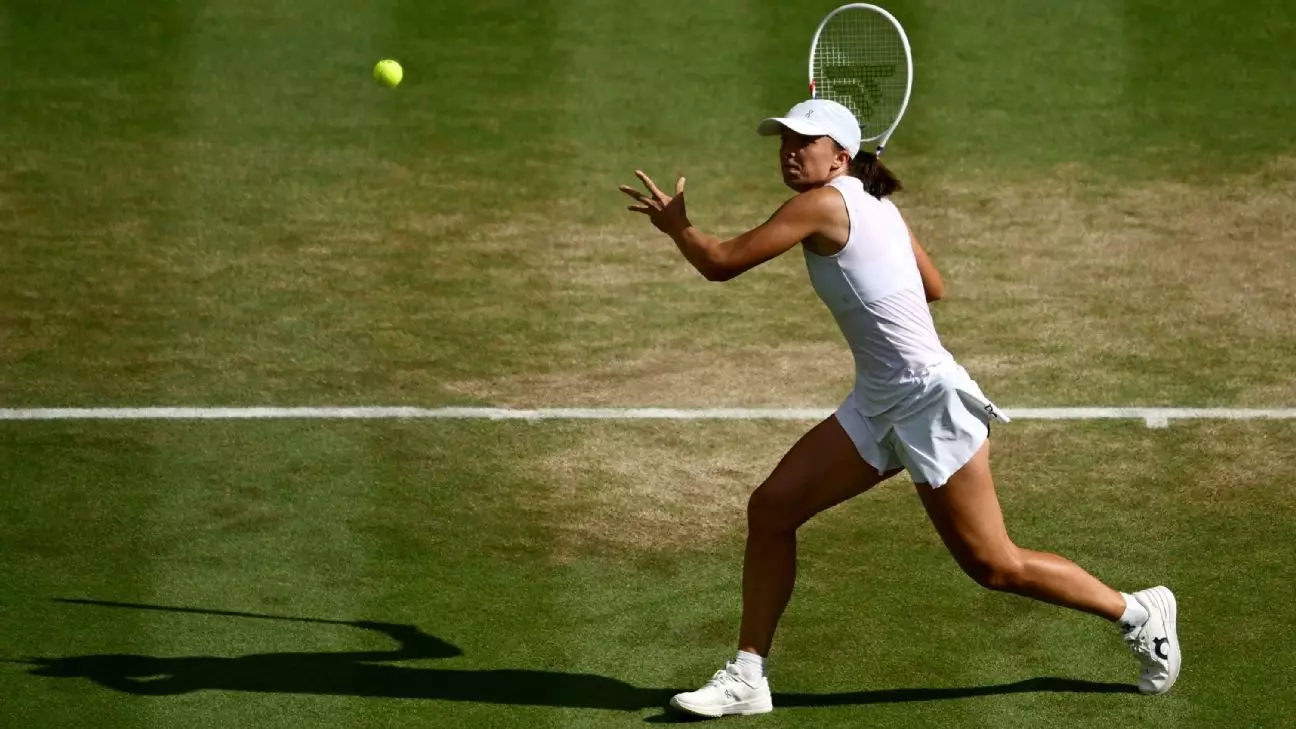Iga Swiatek’s victory at Wimbledon was nothing short of extraordinary, not merely because she secured her first grass-court Grand Slam title but because the manner in which she did so redefined expectations in women’s tennis. Overwhelming Amanda Anisimova with a stunning 6-0, 6-0 score in just 57 minutes, Swiatek delivered an emphatic statement: she is a force to be reckoned with on any surface, especially on grass—a stage historically dominated by players with a different style and approach. Such a dominant, double-bagel final is a rarity, highlighting her apparent mastery of the game and raising questions about the shifting landscape of competitive tennis. It isn’t easy to reconcile the historic rarity of such a scoreline with the relentless precision and resilience Swiatek exhibited; her performance was both a display of talent and a lesson in mental fortitude.
Breaking Stereotypes and Setting New Standards
Swiatek’s triumph challenges the conventional narratives of tennis supremacy. Her rapid ascent from a promising junior to a seasoned champion illustrates an evolving athlete who refuses to be pigeonholed by surface-specific skills or traditional expectations. As of 2024, she stands among a select group of women who have claimed major titles on all three primary surfaces—clay, hard court, and now grass—breaking the myth that versatility on grass is unattainable for non-specialists. This achievement is not just about personal greatness but signals a broader transformation in the sport. Women players are increasingly demonstrating that well-roundedness, resilience, and strategic adaptability matter more than ever, signaling positive momentum toward a more inclusive and merit-based understanding of athletic excellence.
Resilience Amid Controversy and Slumps
Swiatek’s journey has not been without obstacles. Her one-month doping ban last year cast a shadow over her rising trajectory, but she emerged from it with an unwavering focus and a renewed sense of purpose. The incident was a stark reminder of how fragile careers can be amid external scrutiny and technical errors—a consequence of the complex ecosystem of modern sports medicine and ethics. Her ability to recover, maintain her mental strength, and push through setbacks exemplifies a resilient spirit that should inspire broader dialogue on fair play, transparency, and the importance of athlete support systems. The reality is that athletes today are often unfairly scrutinized, yet Swiatek’s story underscores that setbacks can serve as catalysts for growth rather than definitive obstacles.
The Rise of a New Generation and the Future of Women’s Tennis
Amanda Anisimova’s candidacy as a rising star was overshadowed by Swiatek’s dominance, but her story is equally compelling. Last year, she fought her way back into top-tier competition after a hiatus—a testament to grit and determination. Her breakthrough into the top 10 next week signals a changing hierarchy in women’s tennis, emphasizing that youth and mental toughness are paramount. However, her challenging journey highlights that breakthrough performances are often a product of systemic support and a resilient mindset. The sport must recognize that nurturing these qualities is essential for a diverse and competitive future, moving beyond the narratives of star power and focusing instead on sustainable development of athletes.
Women’s Tennis at a Crossroads
Swiatek’s record-breaking feats, including her 100th major match win at such an age, reflect a new era where power, discipline, and mental acuity are reshaping women’s tennis. Yet, these developments also invite scrutiny and debate regarding equality, access, and the emphasis placed on athletic performance. The sport must navigate the delicate balance between celebrating individual achievement and fostering an environment where authentic competition thrives, free from over-commercialization or undue pressure. Swiatek’s dominant performance, while exciting, should serve as a rallying cry to invest in the foundational health of women’s tennis—promoting mental health, fair opportunities, and balanced growth for all emerging talents, not just the already established stars.
Swiatek’s Wimbledon victory is a catalyst for change, a reminder that the sport is rapidly evolving and that new standards are being set. Her performance is a reflection of progress—though perhaps still imperfect—that champions adaptation, resilience, and innovation in the pursuit of true excellence.


Leave a Reply